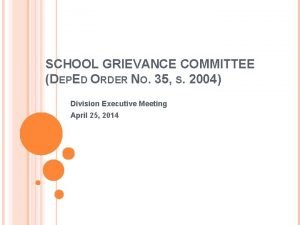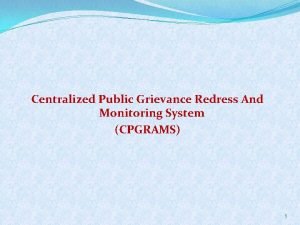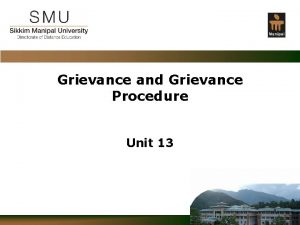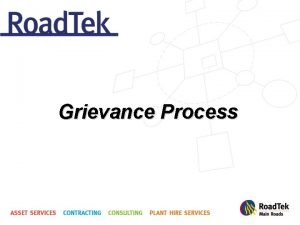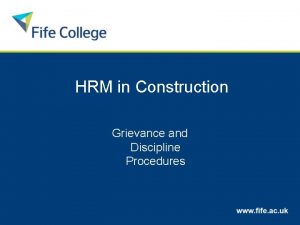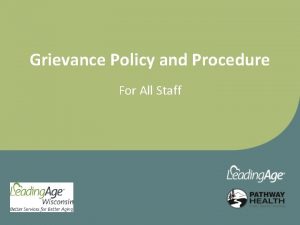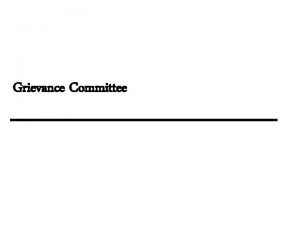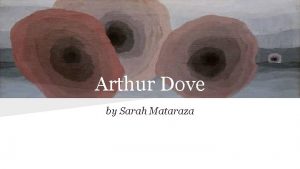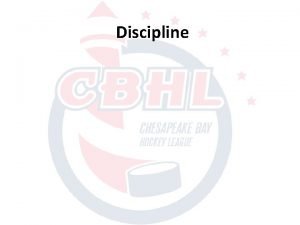NEW ERA FOR GRIEVANCE AND DISCIPLINE Richard Arthur














- Slides: 14

“NEW ERA FOR GRIEVANCE AND DISCIPLINE? ” Richard Arthur Thompsons Solicitors 15 October 2008 Page 1

The 2004 Procedures: • 3 step procedure which must be followed by an employer considering dismissing an employee, or by an employee considering bringing an ET claim; • Written notification, meeting, appeal; • Bar on commencing ET claim unless grievance filed and 28 days expires; • Extension of time limits; • Adjustments to compensation; • Polkey reversal. Page 2

The Gibbons Review: “… although there is some evidence that the procedures have encouraged more early resolution of disputes, they have also created a high administrative burden and had significant unintended consequences which outweighed the benefits. ” Page 3

Government Consultation Response: • • 76% of respondents favoured repeal; Restoration of Polkey; “Short, non-prescriptive ACAS Code of Practice”; “Comprehensive accompanying non-statutory ACAS guidance”; • Simple claims to be determined without hearing; • Removal of fixed conciliation periods; • Simplification of ET forms. Page 4

Employment Bill: • • Repeal of statutory dispute resolution procedures; “Reversal of the Polkey reversal”; Adjustment of awards by up to 25%; Determination of proceedings without hearing if all parties consent; • Duty to conciliate, repeal of fixed conciliation periods; • Compensation for financial loss for unlawful deductions from wages/redundancy payment claims. Page 5

Adjustment of awards If: • a “Relevant Code of Practice” applies; and • the employer/employee has failed to comply with that Code of Practice; and • that failure was “unreasonable” the ET may, if it considers it just and equitable to do so, increase/reduce any award by no more than 25%. Page 6

Draft ACAS Code of Practice: • Short and “principles based”; • “A failure to follow the Code does not, in itself, make a person or organisation liable to proceedings”; • “Employers and employees should do all that they can to resolve disciplinary and grievance issues in the workplace”; • “Recourse to an Employment Tribunal should only be a last resort” Page 7

• • ACAS Code: Discipline Establish the facts; Inform the employee of the problem; Hold a meeting; Allow the employee to be accompanied; Decide on appropriate action; Provide an opportunity to appeal; Special cases: trade union officials. Page 8

• • • ACAS Code: Grievances “Let the employer know the nature of the grievance”; Hold a meeting; Allow the employee to be accompanied; Decide on appropriate action; Allow the employee to take further if not resolved; Special cases: bullying, harassment and whistleblowing. Page 9

Sound familiar? Page 10

• • ACAS Code of Practice: Issues Apparently relevant to liability and compensation adjustment; Exactly when does the 25% uplift/reduction apply (eg right of accompaniment)? Reintroduction of 2004 procedures by the back door? What obligations are placed on employees in relation to grievances? Page 11

More Detailed ACAS Guidance: • Has “no status at an Employment Tribunal”; • Expands upon the Code of Practice. Page 12

Implementation: • Projected: April 2009; • Complex transitional provisions likely; • “Trigger” for application of new procedures likely to be whether the date of the dismissal or disciplinary action/the event giving rise to the grievance is before 1 April 2009; Page 13

• • Conclusions: Likely to be a “throughput” period of al least a year as cases under the 2004 regime work their way through; Transitional provisions while the two regimes work in parallel; Certain aspects of the case law on the 2004 procedures may survive-eg what is a grievance? We are not returning to the pre-2004 world; There will be opportunities for adjustments/reductions; More procedures will need to be followed-grievances, meetings and appeals; It remains to be seen just how “new” the new world will be. Page 14
 Richard iii and looking for richard
Richard iii and looking for richard Richard wagner romantic era
Richard wagner romantic era Baroque music quiz
Baroque music quiz Elizabethan or victorian
Elizabethan or victorian Creí que era una aventura y en realidad era la vida
Creí que era una aventura y en realidad era la vida Poema sobre as estrelas
Poema sobre as estrelas Deped school grievance committee
Deped school grievance committee Adversary in romeo and juliet
Adversary in romeo and juliet Cpgrams jharkhand
Cpgrams jharkhand Fspos
Fspos Typiska novell drag
Typiska novell drag Nationell inriktning för artificiell intelligens
Nationell inriktning för artificiell intelligens Returpilarna
Returpilarna Varför kallas perioden 1918-1939 för mellankrigstiden
Varför kallas perioden 1918-1939 för mellankrigstiden En lathund för arbete med kontinuitetshantering
En lathund för arbete med kontinuitetshantering






